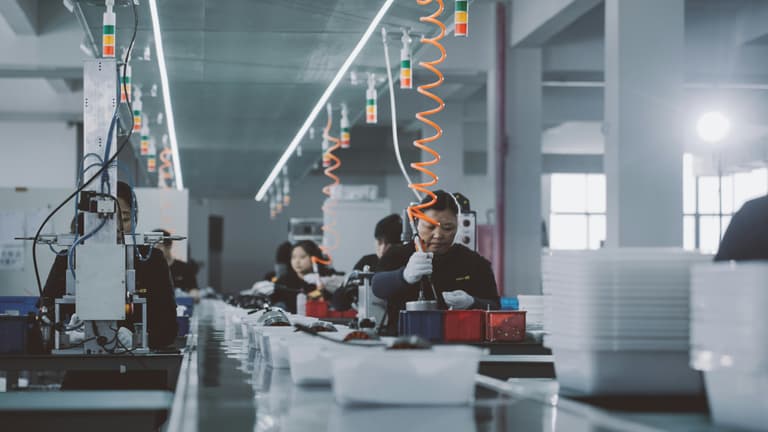The Fifth Anniversary of #MeToo


Five years ago on Oct. 15, a simple tweet changed much of what we know about sexual harassment and its pervasiveness. The movement was brought into our larger culture when actor, producer, and activist Alyssa Milano posted a tweet asking anyone who had ever been sexually harassed or assaulted to reply to the tweet with the words “me too” in order to “give people a sense of the magnitude of the problem.”
In fact, the magnitude of the problem was greater than anyone realized, with hundreds of thousands of replies, experiences, and messages of support shared all across the world. This act sparked a movement that has made countless people more aware of the prevalence of sexual harassment and continues to send ripples of change and education through our culture. October marks the fifth anniversary of the #MeToo movement and it’s important to remember what has been done over the past five years and to continue to take action around what we’ve learned so far.
The origin of the first #MeToo tweet
Milano’s original tweet, which actually did not contain the now ubiquitous #MeToo hashtag, was posted in response to the sexual-abuse allegations made against Harvey Weinstein in October 2017; Weinstein was later found guilty on two out of five charged felonies in February 2020 and sentenced to 23 years in prison. A number of fellow actors and other celebrities responded to Milano’s tweet with their own “me too” statements, including Lady Gaga, Viola Davis, Javier Muñoz, and Gabrielle Union.
In her initial post, Milano said that the “me too” idea was suggested by a friend. Although her tweet helped the #MeToo phrase go viral in 2017, the first known use of the phrase “Me Too” was on MySpace in 2006. Tarana Burke, a sexual assault survivor and activist, coined the phrase on social media to demonstrate how many people (particularly Black women and girls) have experienced sexual harassment or assault. Burke has spent decades empowering and advocating for survivors, as well as leading campaigns to provide them with resources and support.
What #MeToo has done so far
In addition to the conviction of Harvey Weinstein, many other Hollywood celebrities faced a reckoning of allegations and accusations. The #MeToo movement shed light on inappropriate behavior within other industries as well, including music, churches, politics, and the media. Although many of the changes from the #MeToo movement are anecdotal, there are also some hard facts that correlate with the viral hashtag.
In October 2018, one year after Milano’s tweet, the Equal Employment Opportunity Commission reported an increase of 13% harassment claims, which the EEOC attributed to the way the movement made individuals feel more comfortable with sharing their experience. Changes in state legislatures were a result of #MeToo as well, with more than 200 state bills introduced deterring harassment, in addition to new victim protections in 19 states, per a 2020 report from the National Women’s Law Center.
The movement has also had a positive impact in decreasing many inappropriate behaviors, especially towards women. According to a 2019 study out of the University of Colorado, more blatant forms of sexual harassment, such as coercion to sleep with a supervisor or else be fired, decreased from 25% women surveyed to 16% in 2018. Unwanted sexual attention was also found to have declined from 66% to 25% in the same time period.
How far we still have to go
Even though the movement has seen a number of positive changes in the prevention of sexual harassment over the last five years, there is still a long way to go. The same University of Colorado study that found a decrease in unwanted sexual attention and coercion also identified an increase in reports of gender harassment. Growing from 76% in 2016, 92% of women surveyed in 2018 reported “negative treatment of women that is not necessarily sexual but may include things like a supervisor or coworker making sexist remarks, telling inappropriate stories, or displaying sexist material.” Researchers suspect that this was due at least in part to the backlash from men against the #MeToo movement, particularly in male-dominated fields.
Ultimately, sexual harassment is a systemic problem that does not yet seem to have been solved. Studies recently compiled in an article by the Society for Human Resource Management report found that despite continued #MeToo media attention and increased education, workplace harassment is still “running rampant.” A referenced HR firm survey found that 53% of its ~1,700 respondents had dealt with sexual harassment in the past year, with minorities (Hispanic, Black, and Native American workers) facing the worst of it. But the article also mentioned a recent Pew Research Center study that indicates U.S. workplaces are less tolerant of sexual harassment and more supportive of accusers, with 70% of the 6,000 surveyed saying “workplace harassers and abusers are more likely to be held accountable today than in 2017.”
Preventing sexual harassment in the workplace
As a systemic issue, there are multiple steps that a workplace can take to improve company culture and ensure that sexual harassment is prevented as much as possible. Victims of sexual harassment should have multiple channels to make an anonymous report, allowing them to feel safe in voicing their concerns. Consequences for misconduct in an organization company should also be made clear to staff members, including accountability processes ranging up to the termination of the harasser or bully.
Regular training and educational initiatives are also incredibly beneficial in the workplace, and in many cases they are required by state or federal law. The EEOC has also determined that, based on practical and anecdotal evidence, training is an essential part of anti-harassment efforts in the workplace, and is effective as part of a holistic effort that includes better accountability and positive examples from leadership. Consistent with EEOC guidelines and court decisions, EasyLlama’s training covers not just sexual harassment, but all forms of workplace harassment, discrimination, and retaliation in the workplace. When asked, “How prepared do you feel to prevent, identify, and report sexual harassment in the workplace,” 83% of our learners felt prepared after their EasyLlama training, an increase from just 56% before training.
EasyLlama was founded in 2019 and was shaped by the critical workplace issues that surfaced during the #MeToo movement as we usher in the new era of workplace training. Rather than unrealistic scenarios, stale content, and boring learning modules that leave learners disinterested and unengaged, EasyLlama offers best-in-class, interactive, and engaging courses that are customized to your industry. Learners can take their training modules in bite-sized chunks on mobile, tablets, or desktop devices with no email address or login required, and company leadership can easily send training links and monitor statistics from an intuitive dashboard.
While there is still a lot to be done in the fight for sexual harassment prevention and survivor support, we’re proud of the efforts that EasyLlama has made thus far toward education in workplaces across the nation and the world. Reach out today to schedule an EasyLlama demo or to access a free preview of our Sexual Harassment Prevention training.





